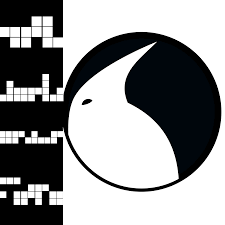 In August 2022 the Office of the National Coordinator for Health Information Technology (ONC) launched the 2022 Public Health Data Systems Task Force as a subcommittee of the Health Information Technology Advisory Committee (HITAC). The task force will meet through the beginning of November to present recommendations continuing and building upon the work of the 2021 task force. Members of the task force include individuals from various levels of government, relevant public health associations, and industry partners. Specifically, the task force is focused on the certification criteria for EHR products certified under the ONC Health IT Certification Program that cover transmission of data from EHRs to public health in these domains...
In August 2022 the Office of the National Coordinator for Health Information Technology (ONC) launched the 2022 Public Health Data Systems Task Force as a subcommittee of the Health Information Technology Advisory Committee (HITAC). The task force will meet through the beginning of November to present recommendations continuing and building upon the work of the 2021 task force. Members of the task force include individuals from various levels of government, relevant public health associations, and industry partners. Specifically, the task force is focused on the certification criteria for EHR products certified under the ONC Health IT Certification Program that cover transmission of data from EHRs to public health in these domains...
Latest News
ONC Launches Public Health Data Systems Task Force
By Noam H. Arzt, Ph.D. | September 18, 2022
Remixing Linux For Blind And Visually Impaired Users
By Vojtech Polasek | September 13, 2022
 When I was around 5 years old, my father brought home our first computer. From that moment on, I knew I wanted to pursue a career in computers. I haven't stopped hanging around them since. During high school, when considering which specific area I wanted to focus on, I started experimenting with hacking, and that was the moment I decided to pursue a career as a security engineer. I'm now a software engineer on the security compliance team. I've been at Red Hat for over two years, and I work remotely in the Czech Republic. Outside of my day job, I play blind football, and I'm involved in various projects connecting visually impaired and sighted people together, including working in a small NGO that runs activities for blind and visually impaired people. I'm also working on an accessible Fedora project currently called Fegora, an unofficial Linux distribution aimed at visually impaired users.
When I was around 5 years old, my father brought home our first computer. From that moment on, I knew I wanted to pursue a career in computers. I haven't stopped hanging around them since. During high school, when considering which specific area I wanted to focus on, I started experimenting with hacking, and that was the moment I decided to pursue a career as a security engineer. I'm now a software engineer on the security compliance team. I've been at Red Hat for over two years, and I work remotely in the Czech Republic. Outside of my day job, I play blind football, and I'm involved in various projects connecting visually impaired and sighted people together, including working in a small NGO that runs activities for blind and visually impaired people. I'm also working on an accessible Fedora project currently called Fegora, an unofficial Linux distribution aimed at visually impaired users.
- Login to post comments
Today's Patient Portals CAN NOT Work: Friction ACROSS Portals (Part 3)
By Vince Kuraitis, and Jody Ranck | September 12, 2022

Friction across multiple patient portals dramatically limits their usefulness—there’s no practical way for patients OR providers to reconcile and integrate information and workflow. This is the third post in our series on patient portals. We’ve used platform terminology and concepts to explain why today’s patient portals are doomed to mediocrity. Let’s recap: The first post in this series introduced the platform terminology of single-homing vs.multihoming. Patients strongly would prefer to have as few portals as possible — ideally one, i.e., a single “home”. The second post described the difference between stand-alone value and network value. Today’s patient portals can provide some stand-alone value, but they provide minimal network value. In this post we’ll discuss the pitfalls of friction across multiple portals. Your mom having seven portals is more than just inconvenient—it’s dangerous.
- Login to post comments
Open Source Matters In Data Analytics: Here's Why
By Ray Paik | September 9, 2022
 Open source is critical in data analysis while providing long-term benefits for the users, community members, and business. It's been a little over a year since I wrote my article titled Introducing the Cube Community. As I worked with our community members and other vendors, I've become more convinced of the benefits of open source in data analytics. I also think it's good to remind ourselves periodically why open source matters and how it provides long-term benefits for everyone. One of the first things I heard from the Cube community was that they often received better support in chat from other community members than they did with proprietary software and a paid support plan. Across many open source communities, I find people who are motivated to help other (especially new) community members and see it as a way of giving back to the community.
Open source is critical in data analysis while providing long-term benefits for the users, community members, and business. It's been a little over a year since I wrote my article titled Introducing the Cube Community. As I worked with our community members and other vendors, I've become more convinced of the benefits of open source in data analytics. I also think it's good to remind ourselves periodically why open source matters and how it provides long-term benefits for everyone. One of the first things I heard from the Cube community was that they often received better support in chat from other community members than they did with proprietary software and a paid support plan. Across many open source communities, I find people who are motivated to help other (especially new) community members and see it as a way of giving back to the community.
- Login to post comments
Usability And Accessibility Start With Open Communication
By Klaatu | September 2, 2022
 Amazing though it may seem, we each experience the world differently. That's one reality with over 6 billion interpretations. Many of us use computers to broaden our experience of the world, but a computer is part of reality and so if you experience reality without, for instance, vision or sound, then you also experience a computer without vision or sound (or whatever your unique experience might be). As humans, we don't quite have the power to experience the world the way somebody does. We can mimic some of the surface-level things (I can close my eyes to mimic blindness, for example) but it's only an imitation, without history, context, or urgency. As a result of this complexity, we humans design things primarily for ourselves, based on the way we experience the world. That can be frustrating, from an engineering and design viewpoint, because even when you intend to be inclusive, you end up forgetting something "obvious" and essential, or the solution to one problem introduces a problem for someone else, and so on. What's an open source enthusiast, or programmer, or architect, or teacher, or just everyday hacker, supposed to do to make software, communities, and processes accessible?
Amazing though it may seem, we each experience the world differently. That's one reality with over 6 billion interpretations. Many of us use computers to broaden our experience of the world, but a computer is part of reality and so if you experience reality without, for instance, vision or sound, then you also experience a computer without vision or sound (or whatever your unique experience might be). As humans, we don't quite have the power to experience the world the way somebody does. We can mimic some of the surface-level things (I can close my eyes to mimic blindness, for example) but it's only an imitation, without history, context, or urgency. As a result of this complexity, we humans design things primarily for ourselves, based on the way we experience the world. That can be frustrating, from an engineering and design viewpoint, because even when you intend to be inclusive, you end up forgetting something "obvious" and essential, or the solution to one problem introduces a problem for someone else, and so on. What's an open source enthusiast, or programmer, or architect, or teacher, or just everyday hacker, supposed to do to make software, communities, and processes accessible?
- Login to post comments
CMS Releases Proposed Updates to Medicare MIPS Promoting Interoperability Program for Physicians
By Noam H. Arzt, Ph.D. | September 2, 2022
 On July 29, 2022 the Centers for Medicare and Medicaid Services (CMS) released a notice of proposed rulemaking (NPRM) related to changes in the Medicare Program Physician Fee Schedule for 2013. Among the proposals in this lengthy document are those related to the Promoting Interoperability Program for physician practices, the successor to the Meaningful Use of Electronic Health Record (EHR) technology that was originally rooted in the 2009 HITECH Act. This program has been evolving over the years and this NPRM proposes some meaningful changes to the public health reporting component which would first be used for calendar year 2023.
On July 29, 2022 the Centers for Medicare and Medicaid Services (CMS) released a notice of proposed rulemaking (NPRM) related to changes in the Medicare Program Physician Fee Schedule for 2013. Among the proposals in this lengthy document are those related to the Promoting Interoperability Program for physician practices, the successor to the Meaningful Use of Electronic Health Record (EHR) technology that was originally rooted in the 2009 HITECH Act. This program has been evolving over the years and this NPRM proposes some meaningful changes to the public health reporting component which would first be used for calendar year 2023.
- Login to post comments
How We Track The Community Health Of Our Open Source Project
By Ruth Cheesley | August 31, 2022
 To be an effective leader in an open source community, you need a lot of information. How do I know who the most active members in my community are? Which companies are making the most contributions? Which contributors are drifting away and becoming inactive? Who in the community is knowledgeable about a specific topic? These were just a few of the questions I had when I started leading the Mautic community at Acquia. But the problem was not a shortage of information. On the contrary, there were so many places our community interacted and so many things to track that I was drowning in data. I could access plenty of data sources, but they were not helping me manage the community effectively or answering my questions.
To be an effective leader in an open source community, you need a lot of information. How do I know who the most active members in my community are? Which companies are making the most contributions? Which contributors are drifting away and becoming inactive? Who in the community is knowledgeable about a specific topic? These were just a few of the questions I had when I started leading the Mautic community at Acquia. But the problem was not a shortage of information. On the contrary, there were so many places our community interacted and so many things to track that I was drowning in data. I could access plenty of data sources, but they were not helping me manage the community effectively or answering my questions.
- Login to post comments
How To Make App Stores Friendly To Open Source
By Simon Phipps | August 11, 2022
 Microsoft recently seemed to propose that Open Source software didn’t belong in the Windows app store. Excuse me? After the news broke, Giorgio Sardo, Microsoft’s General Manager of the Microsoft Store, argued on Twitter that it wasn’t Microsoft’s intent. “We absolutely want to support developers distributing successful OSS apps. In fact, there are already fantastic OSS apps in the Store! The goal of this policy is to protect customers from misleading listings.” Predictably, confusion results. And the kerfuffle over FairEmail and the Google Play Store earlier this year is a good example of how this sort of confusion is not entirely new, leading to questions about intent. I’ve talked with developers and business managers about their experience in preparing software packages for commercial app stores. Universally, everyone reports having issues with app stores’ packaging. These include...
Microsoft recently seemed to propose that Open Source software didn’t belong in the Windows app store. Excuse me? After the news broke, Giorgio Sardo, Microsoft’s General Manager of the Microsoft Store, argued on Twitter that it wasn’t Microsoft’s intent. “We absolutely want to support developers distributing successful OSS apps. In fact, there are already fantastic OSS apps in the Store! The goal of this policy is to protect customers from misleading listings.” Predictably, confusion results. And the kerfuffle over FairEmail and the Google Play Store earlier this year is a good example of how this sort of confusion is not entirely new, leading to questions about intent. I’ve talked with developers and business managers about their experience in preparing software packages for commercial app stores. Universally, everyone reports having issues with app stores’ packaging. These include...
- Login to post comments
Public Health Information Systems Are Not Just About Technology
By Marcey Propp | July 29, 2022
 Public health information systems have always been a key component of the healthcare ecosystem. Links between clinical care and public health have only been increasing, propelled by the pandemic. As defined by the Public Health Informatics Institute (PHII) in its 2021 Immunization Information System (IIS) Core Competency Model, information systems management is the “application and administration of technologies to securely and effectively meet IIS program and user needs”. The pandemic highlighted the need for public health information systems to collect, track, and monitor vaccine administration for ages newborn through adulthood, and mandated data to be reported or accessible to a broad range of recipients at the local, state and federal level.
Public health information systems have always been a key component of the healthcare ecosystem. Links between clinical care and public health have only been increasing, propelled by the pandemic. As defined by the Public Health Informatics Institute (PHII) in its 2021 Immunization Information System (IIS) Core Competency Model, information systems management is the “application and administration of technologies to securely and effectively meet IIS program and user needs”. The pandemic highlighted the need for public health information systems to collect, track, and monitor vaccine administration for ages newborn through adulthood, and mandated data to be reported or accessible to a broad range of recipients at the local, state and federal level.
- Login to post comments
My Open Source Journey With C From A Neurodiverse Perspective
By Rikard Grossman-Nielsen | July 29, 2022
 Gaming is a big industry. Some studies suggest neurodiverse kids may be even more focused on gaming than other kids. I would tell a neurodiverse high school or college kid that If you learn C, you may be able to learn the basics of, for example, writing efficient drivers for a graphics card, or to make efficient file I/O routines to optimize their favorite game. I would also be honest that it takes time and effort to learn, but that it's worth the effort. Once you learn it, you have greater control of things like hardware. For learning C, I recommend a neurodiverse kid to install a beginner-friendly Linux distro, and then find some tutorials on the net. I also recommend breaking down things step by step, and drawing diagrams of, for example, pointers. I did that to better understand the concept, and it worked for me. In the end, that's what it's about: Find a learning method that works for you, no matter what teachers and other students may say, and use it to learn the open source skill that interests you. It can be done, and anyone can do it.
Gaming is a big industry. Some studies suggest neurodiverse kids may be even more focused on gaming than other kids. I would tell a neurodiverse high school or college kid that If you learn C, you may be able to learn the basics of, for example, writing efficient drivers for a graphics card, or to make efficient file I/O routines to optimize their favorite game. I would also be honest that it takes time and effort to learn, but that it's worth the effort. Once you learn it, you have greater control of things like hardware. For learning C, I recommend a neurodiverse kid to install a beginner-friendly Linux distro, and then find some tutorials on the net. I also recommend breaking down things step by step, and drawing diagrams of, for example, pointers. I did that to better understand the concept, and it worked for me. In the end, that's what it's about: Find a learning method that works for you, no matter what teachers and other students may say, and use it to learn the open source skill that interests you. It can be done, and anyone can do it.
- Login to post comments